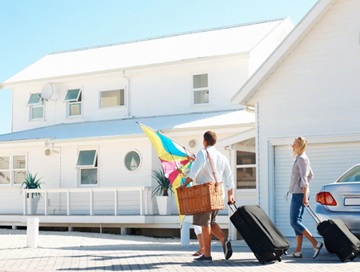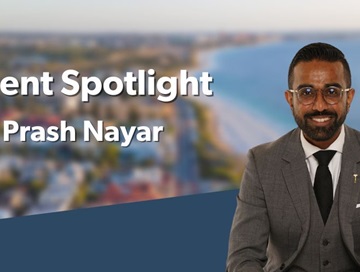The most recent data published by the Department of Treasury indicates that the average first home buyer spends $450,000 on their first property.
In order to avoid paying loan mortgage insurance, a first home buyer would need to save a deposit of 20 per cent of the sale price. For a property with a sale price of $450,000, a deposit of $90,000 would be required (and that's excluding transfer duty costs).
Before you start saving for a deposit, speak to your bank or a financial advisor about home loans and other associated costs. This will help you determine how much you are willing to spend on your first home and how much of a deposit you will need to save to get your foot in the door.
Until you know these details, we have put together some tips to help you budget and save for your first home.
1. Make a list of your necessities
Before you start budgeting and planning for your deposit, make a list of all your necessary expenses, such as:
Board or rent
Insurance - for example, health, car and home
Phone and utility bills
Petrol or transport costs
Groceries
Credit card debt or other loans
By working out what you must pay for each week, fortnight and month you can look at what unnecessary expenses you can cut and how much you can squirrel away for savings.
2. Factor in the costs of buying a house
Aside from saving for a deposit, consider the other cost factors involved in buying your first home and whether you need to save a little extra for these. For example:
Transfer duty (formerly stamp duty)
Mortgage insurance - if applicable
Renovations - if you're planning on buying a fixer-upper
Utility services - you might need to set up connections for water, gas/electrics and internet connection when you move in
Strata fees - if you're buying a unit or apartment which is part of a strata complex
3. Create a realistic budget
Now you have worked out your living expenses and what you need to save, work out how much you can set aside for your deposit each pay run. You can then prepare a budget - but be realistic to ensure you stick to it and keep working towards your goal.
Be sure to consider a timeframe as well when planning your budget - do you need to save larger amounts in a short space of time or can you save smaller amounts over a longer period?
Need some help? Use our handy budget planner calculator.
4. Look into a savings account
It is recommended you speak to your bank about setting up a savings account. That way, you can put money into a separate account to save for your deposit and earn interest on. Better yet, set up automatic transfers for each pay run so you know your savings are being taken out each month before being spent on impulse purchases.
If you're ready to look for your first home in Perth, speak to a local real estate agent or search properties for sale on reiwa.com.
.tmb-imgwidgetm.jpeg?sfvrsn=5a43daa6_1)








767bbbc6-4993-4f16-8933-e9b2baaac7a0.tmb-rcarousel.jpg?sfvrsn=8cf14270_1)
